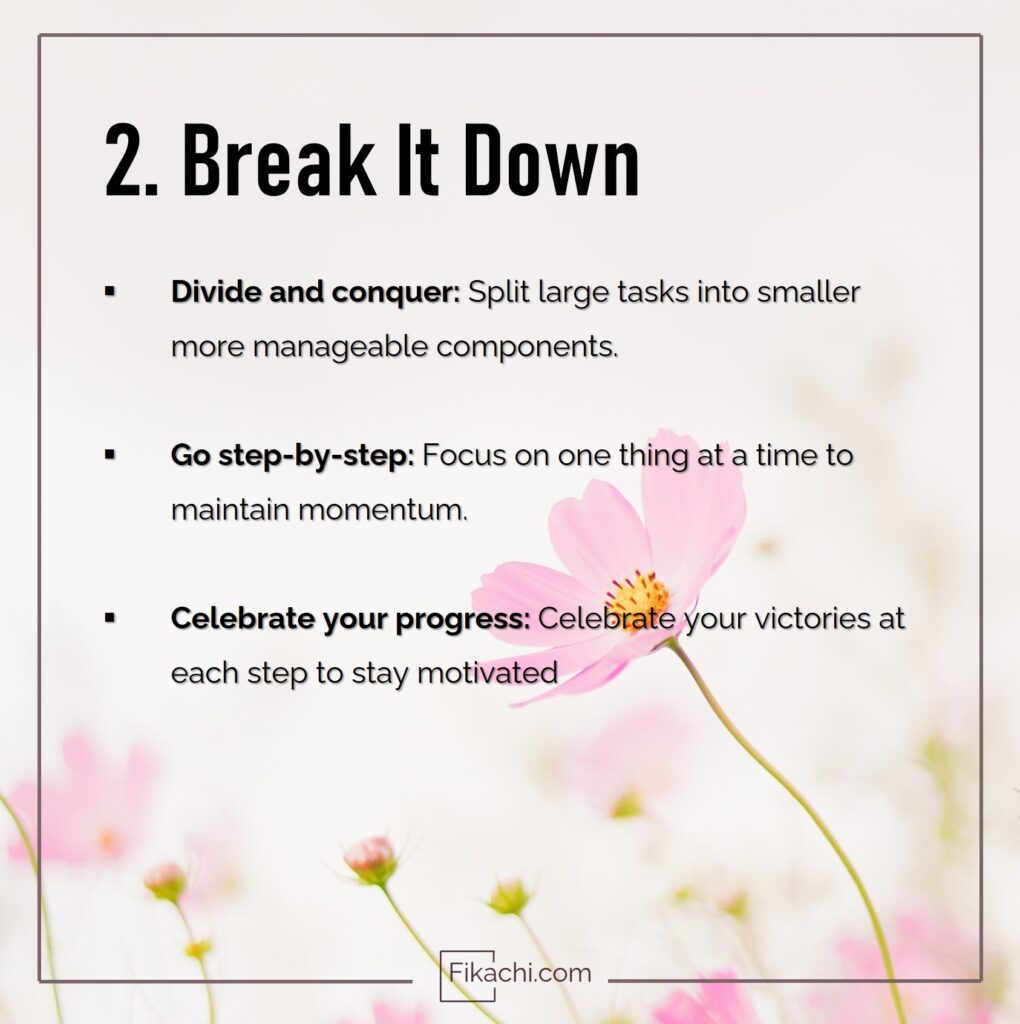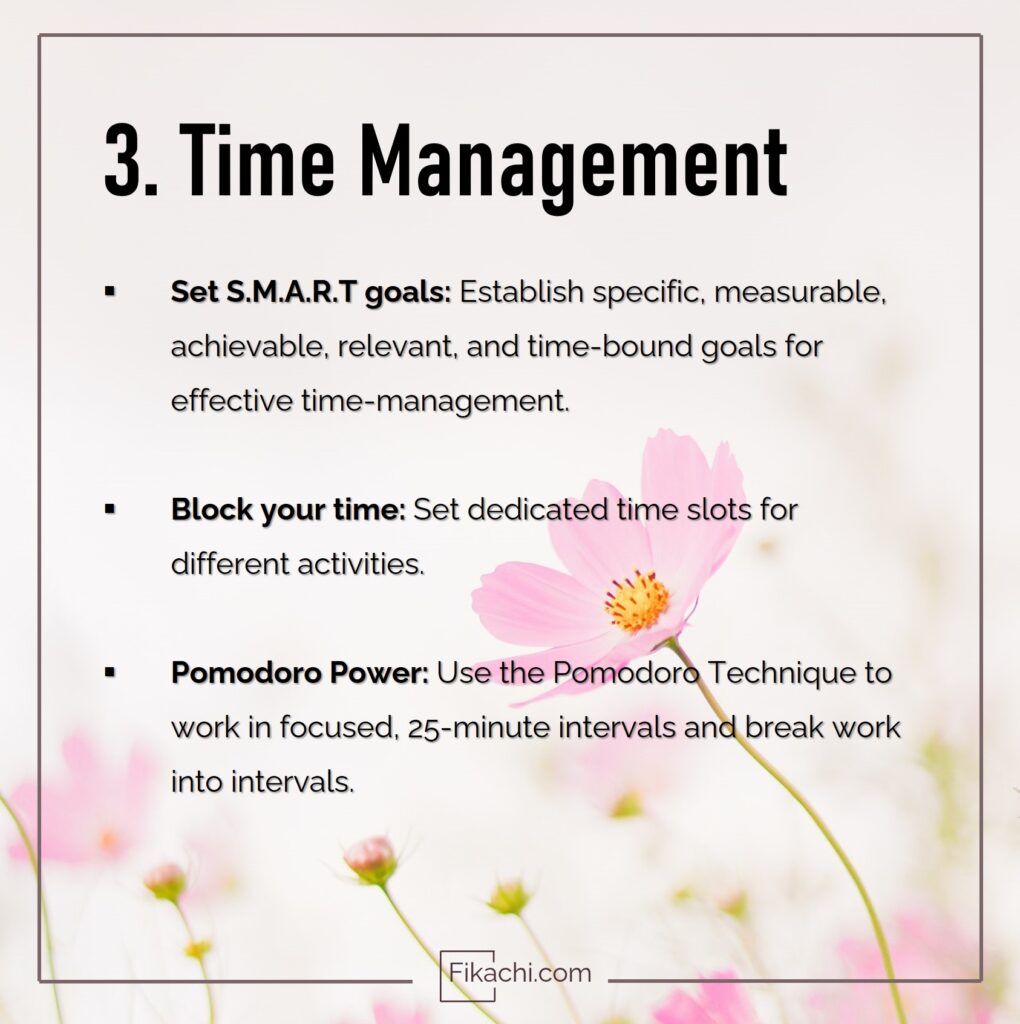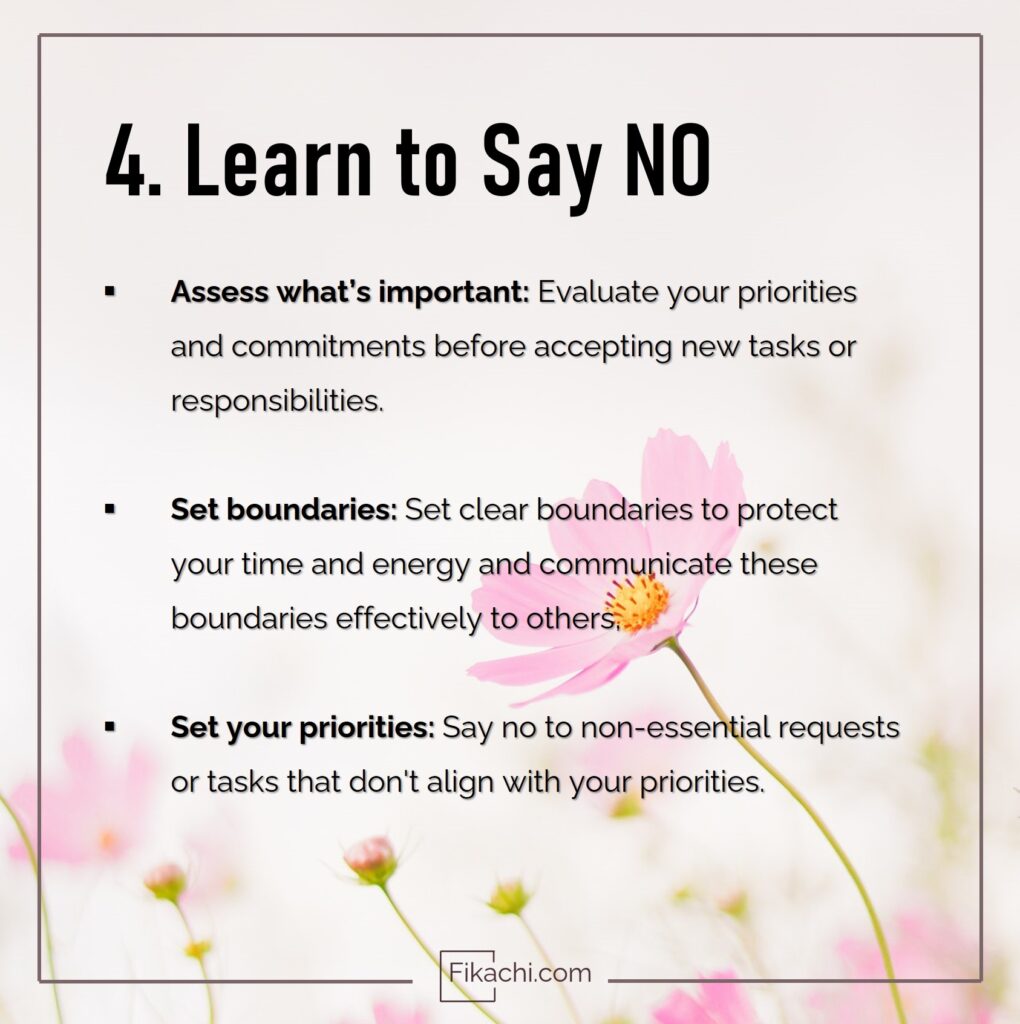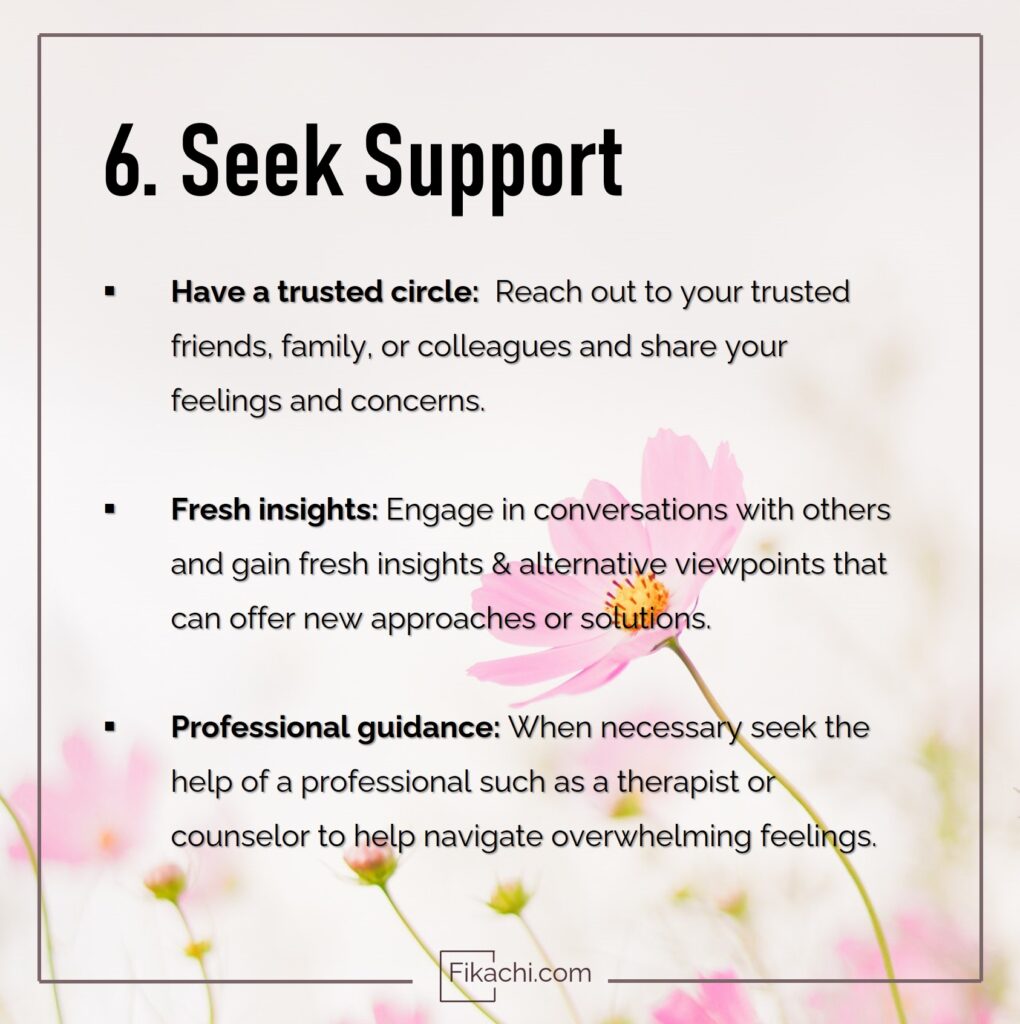All of us at some point in our lives feel overwhelmed, sometimes these feelings are short, and we overcome them quickly. But other times they tend to linger and start affecting our mental state and ability to function effectively. With such a fast-paced life these days, it’s easy to find ourselves caught in a whirlwind of responsibilities, commitments, and information overload.
Here are 6 game-changing tips to take charge of your life and cope with feelings of being overwhelmed.

1. Prioritize and delegate
One of the main reasons of feeling overwhelmed is when we take on too much. By learning to prioritize tasks and delegate where possible we can significantly reduce our stress levels.
- Identify: Pinpoint the most important and urgent tasks to tackle first.
- Focus: Direct your energy and attention on completing high-priority tasks.
- Delegate: Don’t be afraid to share the workload and empower others to help lighten the burden.

2. Break it down
Sometimes when we view a project or task as a whole it feels very daunting and overwhelming. By breaking a task into smaller more actionable and manageable steps we increase our sense of control over the task. Tackling each step individually allows us to see progress and reduces feelings of overwhelm.
- Divide and conquer: Split large tasks into smaller more manageable components.
- Go step-by-step: Focus on one thing at a time to maintain momentum.
- Celebrate your progress: Celebrate your victories at each step to stay motivated.

3. Time management
When we are able to manage our time efficiently, feelings of being overwhelmed are significantly reduced. Set S.M.A.R.T goals to maintain concentration and prevent burnout or stress. Also use the Pomodoro Technique, working for focused intervals followed by short breaks, to maintain concentration and prevent burnout.
- Set S.M.A.R.T goals: Establish specific, measurable, achievable, relevant, and time-bound goals for effective time-management.
- Block your time: Set dedicated time slots for different activities.
- Pomodoro Power: Use the Pomodoro Technique to work in focused, 25-minute intervals and break work into intervals.

4. Learn to say NO
When we overcommit ourselves, feeling overwhelmed is bound to happen. Many of us have the fear of missing out and don’t want to decline going to an event or gathering whereas other times many of us just simply don’t know how to say no. By learning to set boundaries effectively, we can create a structured routine that minimizes stress and feeling overwhelmed.
- Assess what’s important: Evaluate your priorities and commitments before accepting new tasks or responsibilities.
- Set boundaries: Set clear boundaries to protect your time and energy and communicate these boundaries effectively to others,
- Set your priorities: Say no to non-essential requests or tasks that don’t align with your priorities.

5. Practice self-care
Self-care needs to be part of our daily lives and routines to make sure that we maintain our emotional and physical well-being. Activities that rejuvenate and recharge are necessary to keep feelings of being overwhelmed at bay. By taking care of oneself through indulging in one’s favorite hobbies and things one enjoys, we equip ourselves to handle overwhelming situations with much more resilience, determination and reduced stress.
- Start self-care rituals: Incorporate regular self-care rituals into your routine.
- Connect with nature: Spend time in nature regularly to unwind and rejuvenate.
- Move your body: Stay active and engage in daily physical activities.

6. Seek support
Sometimes, we all need a little support and help in difficult or overwhelming situations. By seeking support either from a professional or trusted friends we can drastically reduce our feelings of overwhelm. Just a fresh perspective or someone listening to our feelings can help reduce and manage our stress.
- Have a trusted circle: Reach out to your trusted friends, family, or colleagues and share your feelings and concerns.
- Fresh insights: Engage in conversations with others and gain fresh insights & alternative viewpoints that can offer new approaches or solutions.
- Professional guidance: When necessary seek the help of a professional such as a therapist or counselor to help navigate overwhelming feelings.

Always remember, everyone feels overwhelmed at one point or another in their lives. By following these 6 tips we can you can cope better with these feelings and keep them at bay.





